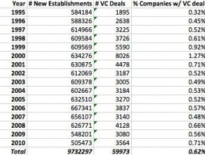
I’ve been frequently asked lately who are considered Austin Angel Investors and though we’ve explored later stage, institutional venture capital in Austin, Texas, I realized I hadn’t put much thought to those whom really stands out as a traditional Angel investor. The distinction matters, and the question an important one, as raising capital requires that you engage with the right sources of funding, at the right stage, with the appropriate measure of progress and potential.
Critical in Austin, to answer this question, is that “Angel” be defined. We’re a nascent investment community (yes, a lot is invested and groups like Central Texas Angel Network are among the largest in the country but…) as traditional venture capital firms aren’t as established as on the coasts. What that means and what’s important to appreciate is that traditional definitions are a bit mixed up as everyone works to fulfill demand and opportunity; private equity firms often participate as venture capital firms, VC firms exists that behave more like angels, and angels or incubators say they are VCs (which technically is accurate) though they’re funding more like friends and family.
Point being, those distinctions matter tremendously as in a healthy and mature startup ecosystem, each source of capital plays an important role with distinct expectations relative to the stage, amount, and purpose of the investment.
So what is an Angel investor?
I think the definition from Investopedia (Angel Investor Definition) and an important perspective from Andy Rachleff (Angel Investors Don’t Make Money).
Paraphrasing from Investopedia
Angel investors provide more favorable terms compared to others since they usually invest in the entrepreneur starting the business rather than the viability of the business. Angel investors are focused on helping startups take their first steps, rather than the possible profit they may get from the business. Essentially, angel investors are the opposite of venture capitalists. “angel” came from the Broadway theater, when wealthy individuals gave money to propel theatrical productions. Angel investors typically use their own money, unlike venture capitalists who take care of pooled money from many other investors and place them in a strategically managed fund.
Wealthfront CEO, Andy Rachleff adds, as you can read in his article, “most people who expect to make money as angel investors are fooling themselves.”
So, ask what the expectations are of those with whom you’re dealing.
Are they financially sound enough to be participating directly in the start of a business with zero expectation of return? Are they, like the angels of the theater, essentially patrons, both financially able and personally interested in helping you start? Lastly, can they substantially support that start? $25k checks are essentially friends and family contributions and not sufficient to start a substantial new, risky, venture; yes, that is “angel investment” but let’s discern that if someone isn’t willing, able, and excited to write a $100k check, they probably don’t meet the other qualifications. So…
Who are the critical Austin Angel Investors? Start with:
- Tom Ball
- Michael Dell
- Rony Kahan
- Pat Condon
- Andrew Busey
- Dan Graham
- Brett Hurt
- Cotter Cunningham
- Sam Decker
- Clayton Christopher



I particularly like that you pointed out, not only the distinction of different stage investors, but the need. The capital markets are ever changing due to hybridization of strategy as a means to appear different or achieve some specific goal (risk mgmt, long/short return blend, etc.). One thing people forget when money raising is to spend time not only on people that support your particular type of business, but that provide the right kind of financing in the first place. How many people have spent months working a lead that invests in their space, only to get a term sheet that isn’t anywhere near what was discussed, let alone a viable option for their startup? Unfortunately, sometimes people that manage other people’s money tend to forget that fact, and can be even harder to deal with than the person/family behind the fund’s coffers. That’s why Angels are so interesting to me; they have the ultimate discretion to decide terms. Their spectrum goes from the truly altruistic to people who want to operate like a PE firm (and are often kidding themselves, as you suggested, about ever making those kinds of returns.) It’s impossible to operate on $25k checks forever, but for a technical founder team, it’s just runway for their personal bills anyway. Every day they get on that runway gives them another day to tighten the product, pitch and vision, which is what’s needed to jump to the next pool of money anyway.
Nice article.
Angel investors are the catalyst to so many great ideas and that success is evident in mainstream usability of the startup’s end result. With the dynamic shifts in business/consumer wants and needs, the purveyors should keep a keen eye and get to know the one that controls the operating account. As the immediate return is negligible, partnering and guiding is definitely a good idea.
Helping a start-up to get prepared for initial investor discussions. They have a unique product that has received a U.S. Patent in less than a year. I have raised capital from an angel investor in the past. I would like to set up some informal contacts to determine the investor’s criteria and focus. The product I am referring is a Toilet. It allows for exterior entrance to the toilet to unclog it without the need for a plumber. The initial market focus is on the Hotel/Casino Industry. They didn’t invent the toilet, they invented a new way to unclog the toilet. No other toilet in the world is designed in this manner. Seed money required to start is $250K. Secon stage rollout is in the neighborhood of $3-$M. The market, Sales Forecast, and #’s are still being refined. The Business plan is written but needs updating to reflect the new #’s. Just seeking advice or your thoughts.
Best regards,
Ron
guess i didnt make the cut
🙂 not that, check the date of the article, it’s got some age on it. Well past due for an update
The people who own those houses below Mt. Bonnell?
Love that this post includes a photo of the River!